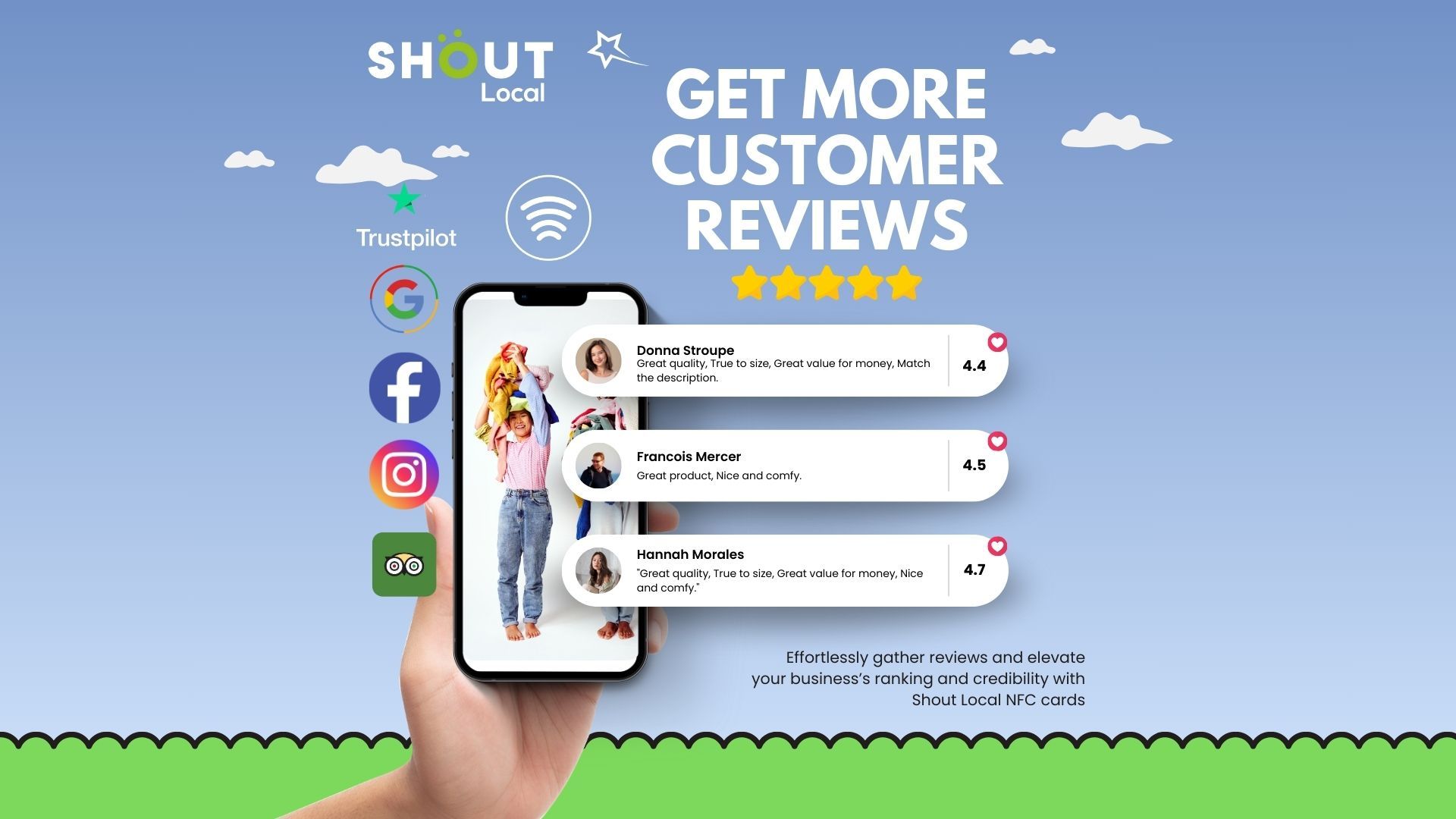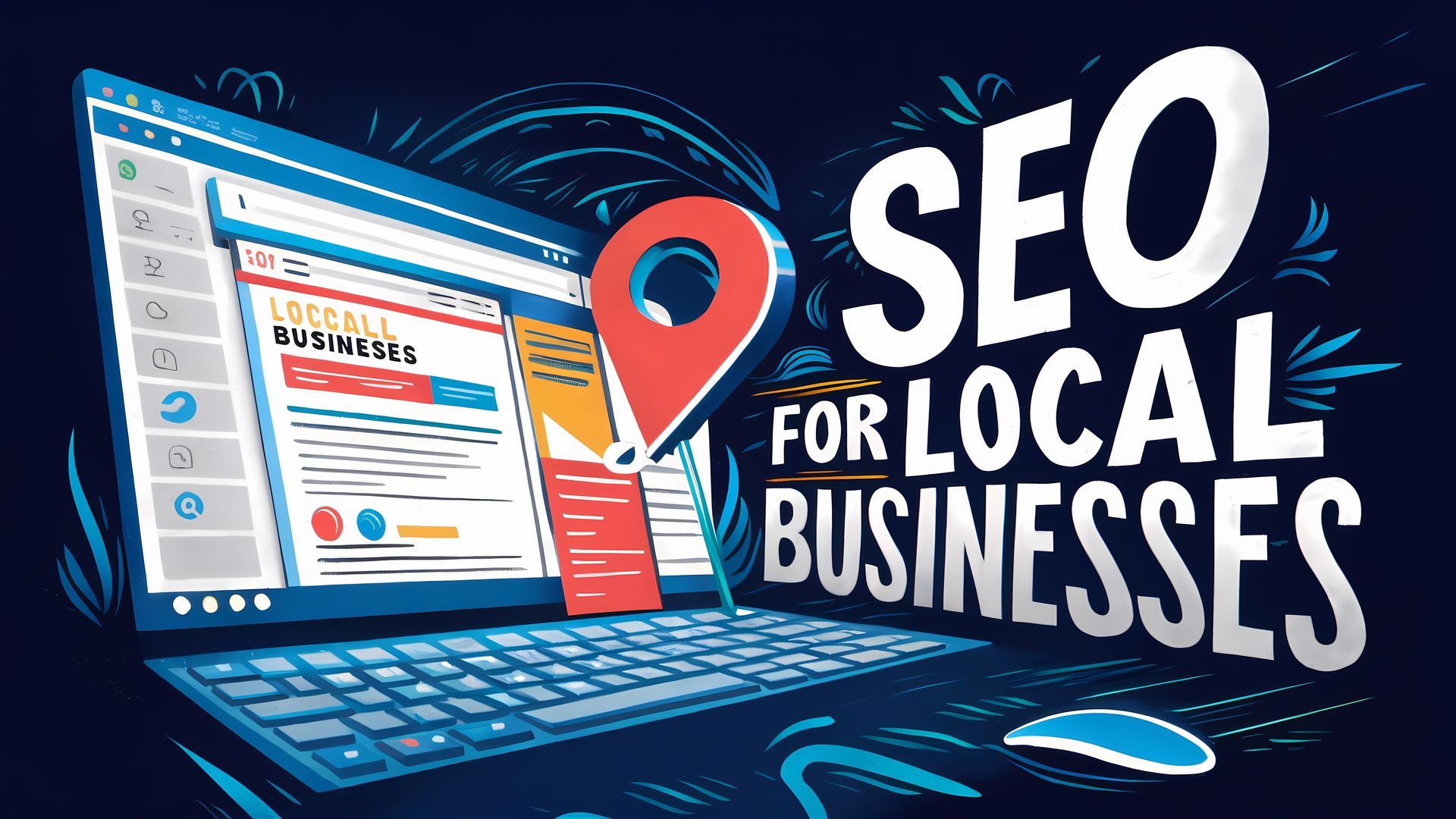Surviving the Narcissist: A Guide to Coping with Difficult Colleagues
Did you know The Mini Media Company are also local business coaches as well?
As business coaches & marketeers, we work with company owners and entrepreneurs on all levels of the business, this helps us work with you and make better decisions on the strategy, as a lot of decisions are made from personal experiences good or bad, not fact.
If you have found yourself in a difficult workplaces and have "gone it alone", including ourselves, so talking from experience, here is some useful information about your past, current or possible future workplace.
One of the most challenging situations I have encountered is when an employee has to deal with a narcissistic boss or coworker.
Narcissists are individuals who have an inflated sense of self-importance and are often unable to empathize with others. Dealing with a narcissist can be emotionally draining and may even impact your mental health. In this blog, I will provide you with tips and strategies on how to cope with a narcissistic individual in the workplace.
Whether you are an employee, manager, or business owner, the advice in this blog will help you navigate this difficult situation and maintain your sanity. So, let's dive in and learn how to deal with a narcissist in the workplace!
-
Families are supposed to be a place of love, support, and encouragement.
However, when there's a narcissistic parent involved, the dynamics within the family can become toxic and dysfunctional. Narcissistic parents often manipulate and control their children, causing rifts and divisions within the family.
If you're someone who has been estranged from your family due to a narcissistic parent, it's possible to reconnect with your loved ones. In this blog, we'll discuss some ways in which family members can reconnect after being divided by a narcissistic parent.
Recognize the problem:
The first step towards reconnecting is acknowledging the problem. Understand that the narcissistic parent is the source of the dysfunction and not the other family members. This can help to dispel any feelings of blame or guilt that may be preventing you from reconnecting.
Seek therapy:
Family therapy can be a helpful tool in re-establishing relationships. It can provide a safe and neutral space for family members to express their feelings and work towards resolving conflicts. Therapy can help to facilitate communication and build trust, allowing for a more positive and productive relationship.
Focus on the positive:
When trying to reconnect, it's important to focus on the positive aspects of the relationship. Try to identify shared interests or positive memories that you can build upon. This can help to shift the focus away from the negative aspects of the past and towards a more optimistic future.
Set boundaries:
It's important to set boundaries with the narcissistic parent to prevent them from interfering in your relationships with other family members. Establishing clear boundaries and sticking to them can help to prevent further conflicts and build trust within the family.
Practice forgiveness:
Forgiveness can be a difficult process, but it's an important step towards reconnecting with family members. Forgiving doesn't mean forgetting, but it does mean letting go of any resentment or anger towards others. This can help to create a more positive and harmonious relationship moving forward.
Be patient:
Reconnecting with family members after being divided by a narcissistic parent can take time. It's important to be patient and not expect immediate results. It may take several sessions of therapy or multiple attempts at reaching out before progress is made. However, with patience and persistence, it's possible to rebuild relationships and create a healthier family dynamic.
In conclusion,
being divided by a narcissistic parent can be a painful and challenging experience. However, it's possible to reconnect with family members by recognizing the problem, seeking therapy, focusing on the positive, setting boundaries, practicing forgiveness, and being patient. It may take time, but with a willingness to work towards a healthier relationship, it's possible to heal and reconnect with loved ones.
-
Family businesses are a unique and often successful breed of companies that are built on the foundations of trust, loyalty, and shared values.
However, when a narcissistic family member takes the reins of the business, things can quickly take a turn for the worse. Narcissism, defined as an excessive admiration of oneself, can lead to a destructive and toxic work environment that can ruin even the most successful family businesses.
In this blog, we'll explore some examples of the rise and fall of successful family businesses that have been ruined by a narcissist.
The Weinstein Company
The Weinstein Company was a highly successful film studio co-founded by brothers Harvey and Bob Weinstein in 2005. The company produced award-winning films such as "The King's Speech" and "The Artist," but its success was marred by the toxic behavior of Harvey Weinstein. Weinstein was accused of sexual harassment and assault by multiple women, leading to his downfall and the eventual bankruptcy of the company.
L'Oreal
L'Oreal is one of the world's largest cosmetics companies, founded by Eugène Schueller in 1909. Schueller's daughter, Liliane Bettencourt, inherited the company and became one of the wealthiest women in the world. However, her son, François Bettencourt-Meyers, accused her of giving away millions of dollars to her friend and photographer, François-Marie Banier, whom he believed was taking advantage of her. The resulting legal battle was highly publicized and tarnished the family's reputation.
Trump Organization
The Trump Organization is a multinational conglomerate founded by Fred Trump in 1923, and later led by his son Donald Trump. The company's success was overshadowed by Donald Trump's narcissistic behavior, including allegations of sexual misconduct and fraud. Trump's presidency and subsequent impeachment further tarnished the company's reputation, and its future remains uncertain.
Walmart
Walmart is the world's largest retailer, founded by Sam Walton in 1962. Walton's children inherited the company and continued to grow it into the retail giant it is today. However, in 2015, one of Walton's heirs, Alice Walton, was arrested for driving while intoxicated. The incident brought negative publicity to the family and the company, highlighting the dangers of nepotism and entitlement.
Koch Industries
Koch Industries is a multinational corporation founded by Fred Koch in 1940, and later run by his sons, Charles and David Koch. The company's success was overshadowed by the Koch brothers' political activism, including support for climate change denial and opposition to government regulation. Their controversial views and actions alienated many customers and employees, leading to a decline in the company's reputation.
In conclusion,
the rise and fall of successful family businesses that have been ruined by a narcissist is a cautionary tale for all businesses, whether family-owned or not. The toxic behavior of narcissistic individuals can destroy a company's reputation and even lead to its downfall. It is essential for businesses to have proper governance structures in place and to recognize and address any toxic behavior before it becomes a larger issue.
-
Family businesses can be complex and challenging even under the best of circumstances
When a parent who is a narcissist is involved, however, the situation can become even more complicated. Narcissistic parents can create unique challenges for their children and other family members who are involved in the business, often leading to conflict, tension, and dysfunction.
Narcissistic parents are individuals who have an exaggerated sense of self-importance and a need for admiration from others. They often lack empathy, are highly critical of others, and can be emotionally abusive. When these traits are present in a parent who is also involved in the family business, they can have a profound impact on the business and the family dynamics surrounding it.
One of the primary challenges of having a narcissistic parent in a family business is the potential for power struggles and control issues. Narcissistic parents may view the business as an extension of themselves, rather than a separate entity with its own needs and goals. This can lead to an inability to delegate responsibilities, a refusal to listen to others' ideas and perspectives, and a tendency to micromanage.
In addition, narcissistic parents may have unrealistic expectations of their children and other family members who work in the business. They may demand perfection and become highly critical when expectations are not met. This can lead to a toxic work environment where employees are constantly walking on eggshells, afraid to make mistakes or speak up for fear of retribution.
Narcissistic parents may also play favourites among their children or other family members who work in the business. This can create resentment and a sense of unfairness, leading to family members feeling undervalued or unappreciated. It can also cause tension and conflict among siblings or other family members who are vying for the parent's approval and attention.
Another challenge of having a narcissistic parent in a family business is the potential for financial manipulation. Narcissistic parents may use the business to control their children financially, withholding salaries or bonuses as a means of punishment or reward. They may also use the business to funnel money into their own personal accounts, without regard for the long-term health of the business or the needs of other family members.
Despite these challenges, it is possible for a family business to thrive in the presence of a narcissistic parent. It requires open communication, clear boundaries, and a willingness to seek outside help if necessary. Family members who work in the business may benefit from individual therapy to cope with the emotional toll of dealing with a narcissistic parent. They may also benefit from family therapy to address the dynamics of the family and the business.
In conclusion, having a narcissistic parent in a family business can make the situation even more complex and challenging. It can create power struggles, unrealistic expectations, financial manipulation, and tension among family members. However, with open communication, clear boundaries, and a willingness to seek outside help, it is possible for a family business to thrive in the presence of a narcissistic parent.
-
In many family businesses, there is often one family member who holds all the power and control.
This individual may be a narcissist, using their position to manipulate and control others. When this happens, family members who are actually employees may find themselves in a difficult position. They may be treated unfairly, denied benefits or promotions, or forced to work in unsafe conditions. In some cases, family members have taken legal action against the narcissist parent to protect their rights as employees.
One example of this is the case of the Trump Organization. The Trump Organization is a family business that was founded by Fred Trump in 1923. The business was later taken over by his son, Donald Trump. Donald Trump's siblings, Maryanne Trump Barry and Robert Trump, worked for the organization for many years. However, in 2020, Maryanne Trump Barry filed a lawsuit against her brother and the Trump Organization, alleging that she was cheated out of millions of dollars in inheritance and benefits. Maryanne claimed that her brother had used his position to manipulate her and other family members for his own financial gain.
Another example is the case of the Redstone family. The Redstone family owns the media company ViacomCBS. The company was founded by Sumner Redstone, who passed away in 2020. Sumner's daughter, Shari Redstone, is the current chair of ViacomCBS. However, in 2016, Sumner's granddaughter, Keryn Redstone, filed a lawsuit against her grandfather and aunt, alleging that they had unfairly removed her from the board of National Amusements, the holding company that controls ViacomCBS. Keryn claimed that she was entitled to a seat on the board as a shareholder, but was denied her rights due to family politics.
A third example is the case of the Melamed family. The Melameds own a chain of dry cleaning stores in California. The business was founded by Shlomo Melamed, who later passed away. Shlomo's daughter, Rachelle Melamed, took over the business and began mistreating her siblings, who also worked for the company. Rachelle fired her brother and sister without cause, and denied them their share of the profits. In response, the siblings filed a lawsuit against Rachelle, alleging that she had breached her fiduciary duty to the company and had violated their rights as shareholders.
These cases demonstrate the importance of protecting the rights of family members who are also employees in family businesses. Just because someone is a family member does not mean they can be mistreated or denied their rights. If you are a family member who is experiencing unfair treatment in a family business, you may have legal options to protect yourself. It is important to consult with an experienced speciailist solicitor who can help you understand your rights and options.
-
Families have been known to work together to create successful businesses that can last for generations.
However, when a family business is built on narcissism, it is bound to fail and cause pain and hurt for the victims involved. Narcissism is a personality disorder characterized by an exaggerated sense of self-importance and a lack of empathy for others. In the context of a family business, it can manifest in a variety of destructive ways that ultimately lead to its downfall.
Narcissistic individuals are often driven by their own interests and desires, with little regard for the needs or feelings of others. In a family business setting, this can result in a toxic work environment where family members are pitted against each other and forced to compete for attention and recognition from the narcissistic leader. This can lead to a lack of trust and communication, and ultimately, the breakdown of the business.
Furthermore, narcissistic leaders are often resistant to feedback and criticism, making it difficult for the family business to adapt and grow. They may be unwilling to delegate responsibilities or share decision-making power, leading to a lack of innovation and stunted growth. In addition, they may be more focused on maintaining their own power and control over the business rather than making decisions that benefit the company as a whole.
The victims of a narcissistic family business can be numerous and varied. Family members who are not the narcissistic leader may feel neglected, undervalued, or even abused by the leader's actions and behaviors. Employees and customers may also be impacted, experiencing mistreatment or poor service due to the toxic work environment created by the narcissistic leader. Ultimately, the business itself may suffer, as the focus on the narcissistic leader's needs and desires can take precedence over the success and well-being of the company as a whole.
The consequences of a family business built on narcissism can be devastating. Family members may experience emotional trauma and long-term damage to their relationships, while employees and customers may suffer financial losses and damaged reputations. In the worst cases, the business may fail completely, leading to financial ruin for everyone involved.
In conclusion, a family business built on narcissism is bound to fail and cause pain and hurt for the victims involved. The toxic work environment, lack of communication and innovation, and focus on the narcissistic leader's needs and desires can ultimately lead to the downfall of the business. It is important for family businesses to prioritize collaboration, communication, and empathy in order to avoid the destructive effects of narcissism and build a successful, sustainable business that benefits everyone involved.
-
Narcissistic parents may use a variety of tactics to divide family members in a family business to gain control of the company.
Here are some common strategies they might use:
Favoritism:
A narcissistic parent may choose a favorite child to work with them in the family business and provide that child with special treatment and privileges. This can create jealousy and resentment among other family members, leading to division and conflict.
Undermining:
A narcissistic parent may try to undermine the authority and credibility of other family members, especially those who challenge their decisions or authority. They might spread rumors or make false accusations to discredit other family members and gain control over the company.
Scapegoating:
A narcissistic parent may blame other family members for problems in the company or project, even when those problems are not their fault. They might use this tactic to create a sense of guilt and responsibility among family members and gain control over the company.
Gaslighting:
A narcissistic parent may use gaslighting techniques to manipulate family members and make them doubt their own perceptions and memories. They might deny things they have said or done, blame others for their own mistakes, or make family members feel crazy or irrational.
Isolation:
A narcissistic parent may isolate family members from each other and limit their communication and interaction. They might create conflicts and divisions among family members to prevent them from forming alliances and challenging their authority.
These tactics can be highly effective in creating division and conflict among family members in a family business. To overcome these challenges, it is essential for family members to recognize and address narcissistic behavior and work towards open communication, mutual respect, and a shared vision for the company's future. Seeking the help of a professional therapist or mediator can also be helpful in resolving conflicts and rebuilding family relationships.
-
What are your rights as an employee of an narcissist?
Whether or not you can claim damages for being removed from a narcissist family business would depend on the specific circumstances of your case, including the laws of the jurisdiction where the business is located, the nature of your involvement in the business, and the reasons for your removal.
If the trustee of the family business is a narcissist and has removed you from the business unfairly, you may have legal options available to you. It would be important to seek the advice of a qualified solicitor who can assess your situation and help you determine the best course of action.
Some possible legal avenues to pursue could include filing a lawsuit for breach of fiduciary duty or seeking an injunction to prevent the trustee from further harming the business or its stakeholders. Your solicitor may also be able to negotiate a settlement or mediation with the trustee or pursue other legal remedies based on the specifics of your case.
It is important to approach any legal action against a narcissist with caution and careful consideration of the potential risks and consequences. Narcissists may be prone to retaliatory behavior, so it may be wise to work with an solicitor who has experience dealing with high-conflict individuals and situations.
-
Employees who are related in a family led by a narcissist have legal rights that protect them from discrimination and harassment in the workplace, regardless of their family relationship to the employer.
If the narcissistic behavior of the employer creates a hostile work environment, employees may be entitled to legal recourse under employment laws.
Here are some potential legal rights that may apply:
Protection against discrimination: Employees have the right to work in an environment free from discrimination based on their age, race, sex, national origin, religion, disability, or other protected class. If the narcissistic behavior of the employer is motivated by discriminatory factors, employees may be able to pursue a legal claim for discrimination.
Protection against retaliation: Employees who report or complain about narcissistic behavior or harassment by their employer have the right to be protected from retaliation. If an employer takes adverse action against an employee because they reported the behavior, the employee may be able to pursue a legal claim for retaliation.
The Employment Rights Act 1996: If employees need to take time off from work to care for a family member who is suffering from the narcissistic behavior of the employer, they may be eligible for job-protected leave under The Employment Rights Act 1996.
Some sections of laws that protect employees from discrimination and harassment in the workplace, such as state anti-bullying laws or laws that protect against familial discrimination.
It's important to note that employment laws can be complex and vary depending on the circumstances of each case. If you believe your legal rights have been violated, it's best to consult with an experienced employment lawyer who can advise you on your options.
-
Mental wellbeing in a family business
Growing up in a family business can be a unique and rewarding experience for some individuals. However, when that business is led by a narcissistic family member, it can result in significant mental damage for those involved, particularly when education takes a backseat to the business.
Narcissistic individuals are characterized by their inflated sense of self-importance, lack of empathy, and need for admiration. In a family business setting, this often translates to the narcissistic family member expecting their relatives to prioritize the business above all else, including education and personal growth.
Children who grow up in this environment may feel immense pressure to perform well and please the narcissistic family member. They may also experience feelings of neglect and abandonment as they struggle to balance their education and personal lives with the demands of the family business.
One of the most significant ways in which working for a narcissistic family member can cause mental damage is through the erosion of self-esteem. Narcissistic family members often belittle and criticize their relatives, even in front of others, which can lead to feelings of shame and worthlessness.
Furthermore, when education is devalued in favor of the family business, children may struggle to develop a sense of identity and purpose outside of their work. This can lead to feelings of anxiety and depression, as well as a sense of being trapped in a situation that they did not choose for themselves.
Children who grow up working for a narcissistic family member may also struggle with boundaries and relationships. Narcissistic individuals often lack empathy and are unable to understand or respect the needs of others. This can lead to a breakdown in family relationships and a sense of isolation for the child.
Additionally, when education is not valued, children may miss out on important socialization opportunities and may struggle to develop healthy relationships with peers outside of the family business. This can lead to feelings of loneliness and a sense of being disconnected from the world around them.
In conclusion, growing up in a family business led by a narcissistic family member can have significant mental health consequences for children. The devaluation of education, the erosion of self-esteem, and the breakdown of relationships can all lead to feelings of anxiety, depression, and isolation. It is essential for families to prioritize the well-being of all members and to seek help if necessary to address any mental health concerns.
The Mini Media Blog

The Mini Media Blog

All Rights Reserved | The Mini Media Co
The Mini Media Company Ltd
Beaconwood
Bordon Hill
Stratford Upon Avon
Warwickshire
CV37 9RX
Company number 11194674
ICO REF: ZB184523
Terms & Conditions of Business Click HERE
Contact Us
01789 417 897
info @ minimediaco.com
Areas we cover:
Stratford upon Avon, Royal Leamington Spa, Evesham, Redditch, Solihull, Banbury, Cotswolds, Daventry, Rugby, Coventry & United Kingdom.
Privacy click here
















